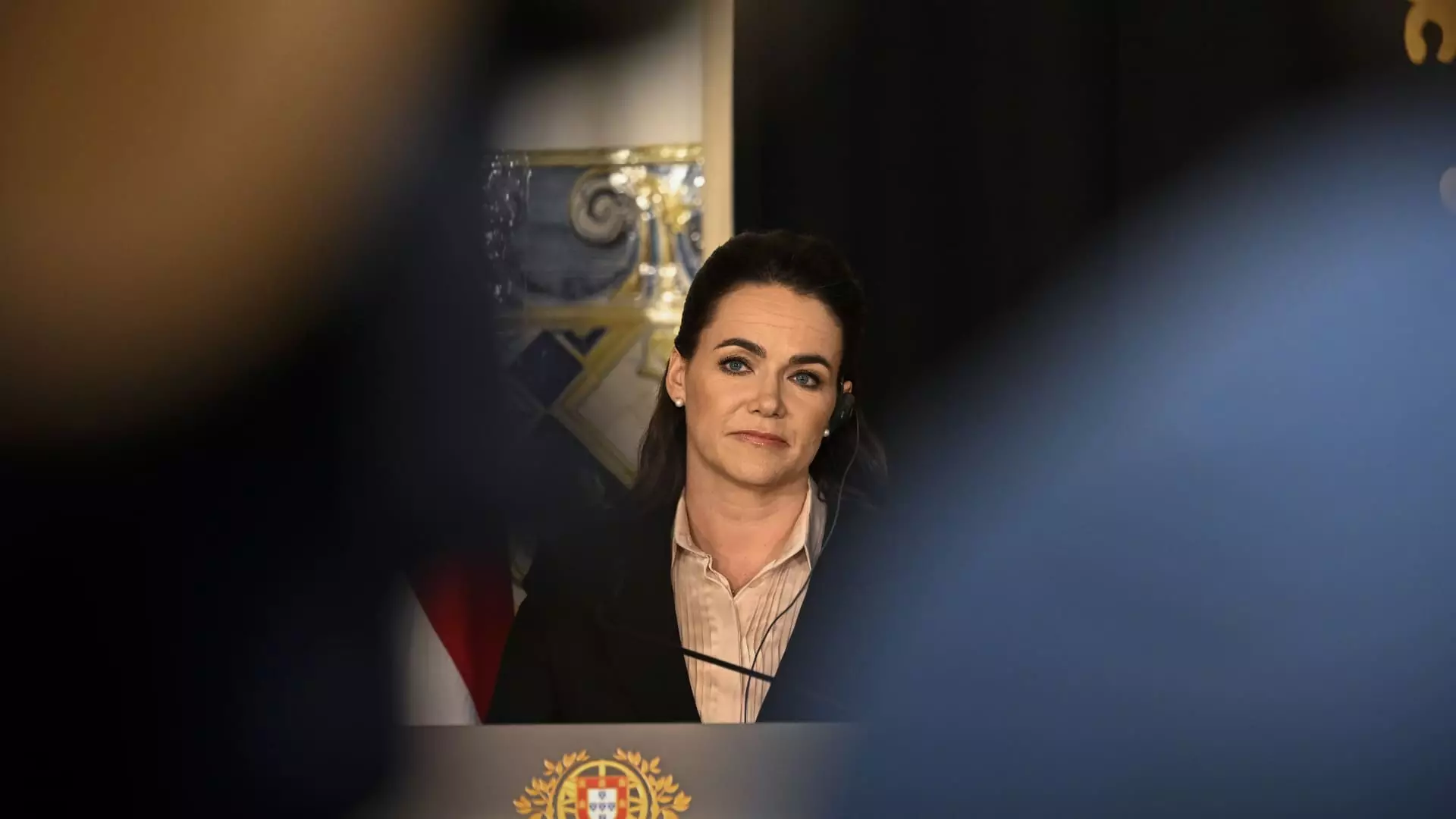Hungarian President Katalin Novak’s resignation has sent shockwaves through the nation, causing a public uproar and demands for her departure. The scandal erupted after she granted a pardon to a man convicted of covering up sexual abuse in a children’s home. This revelation, initially reported by local news site 444.hu, exposed the president to mounting pressure from the opposition, ultimately leading to her resignation. Despite being a close ally of conservative Prime Minister Viktor Orban, Novak’s decision became a rare setback for his ruling party, Fidesz.
The resignation of President Novak is a significant blow to Prime Minister Orban, who has been in power for over a decade. With European parliament elections on the horizon, the scandal could not have come at a worse time for Orban. Already facing opposition for his controversial views on LGBTQ rights, Orban now finds himself entangled in a scandal involving paedophilia. This latest episode has further strained his relationship with the European Commission, exacerbating the already tense dynamic between Hungary and the European Union.
In an emotional address on state television, President Novak publicly admitted to her mistake and announced her resignation. She acknowledged that her decision to grant a pardon without proper reasoning had cast doubt on the zero tolerance policy against paedophilia. Novak, whose role as president is largely ceremonial, expressed regret for her actions and wished to address the nation for the last time. Her unexpected return from an official visit to Qatar underscored the gravity of the situation, signaling the seriousness with which she approached the scandal.
The Opposition’s Demand for Accountability
Hungarian opposition parties wasted no time in demanding Novak’s resignation following the revelation of the pardon. This strong reaction from the opposition was met with further demonstrations as a thousand protesters rallied at Novak’s office, calling for her immediate departure. The intensity of the public outcry created immense political pressure, leaving the president with little choice but to step down. The opposition’s demand for accountability resonated with many who believed that Novak’s actions had undermined the integrity of her position.
As the scandal threatened to engulf the ruling party, Prime Minister Orban took swift action to contain the political fallout. He personally submitted a constitutional amendment to parliament, seeking to strip the president of the power to pardon crimes committed against children. This unexpected move was widely seen as a clear message to Novak and an attempt to ease the mounting pressure on his party. However, the amendment’s timing and motivation were questioned by political analysts, fueling speculation and debate surrounding Orban’s true intentions.
In a surprising turn of events, former Justice Minister Judit Varga, a rising star in Fidesz, also resigned as a lawmaker. Varga, who had signed off on the controversial pardon, expressed personal responsibility for her decision and announced her resignation on Facebook. She went further by resigning from public life entirely, including her top position on the European party list. This unexpected resignation sent shockwaves through Fidesz and raised questions about the party’s internal dynamics and the impact of the scandal on its standing in the upcoming elections.
While Fidesz currently leads opinion polls ahead of the June elections, the scandal has put its position in jeopardy. About a third of voters remain undecided, leaving room for other parties to influence the outcome. The resignations of Novak and Varga, as well as the party’s handling of the scandal, could have significant repercussions on Fidesz’s standing. As the election approaches, the party must work diligently to regain the trust of the public and ensure that its actions align with the values of the Hungarian people.
Through the unexpected resignation of President Novak and the subsequent departure of Minister Varga, Hungary finds itself grappling with a scandal that has shaken its political landscape. The fallout from this shocking turn of events will undoubtedly shape the country’s future and the upcoming elections. As Hungary emerges from an inflation crisis, its leadership must navigate this crisis with care, demonstrating a sincere commitment to the protection of children and the preservation of public trust.


Leave a Reply